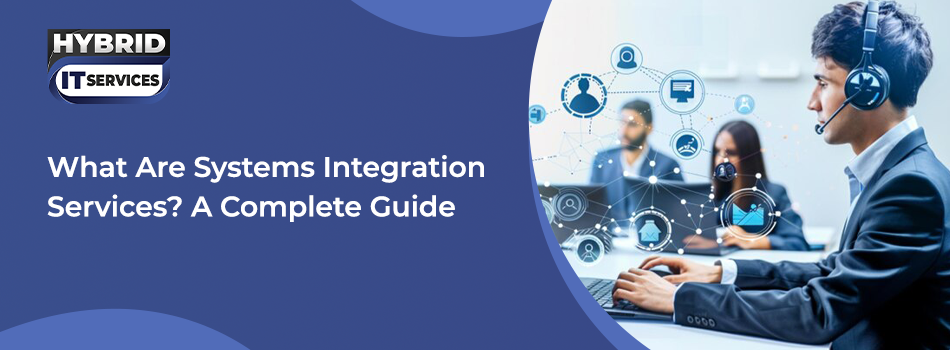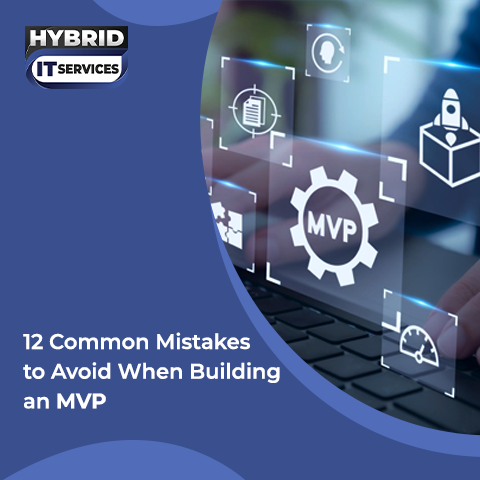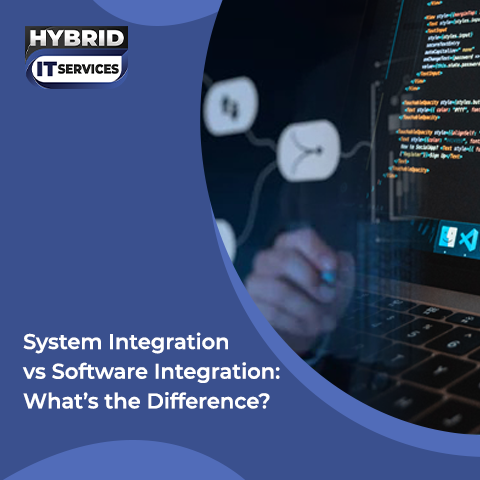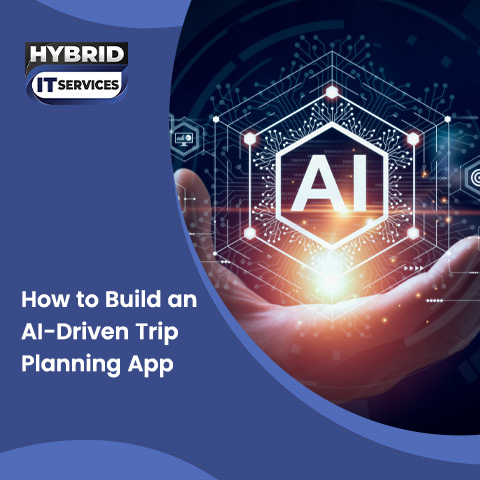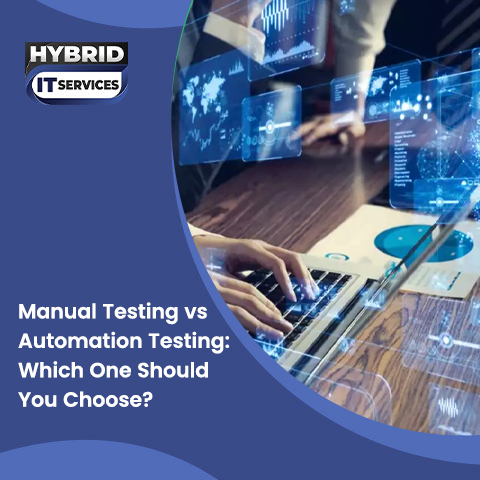Businesses use several tools of software, platforms, and technology to run their operations. From accounting and human resources to logistics and customer relationship management, nearly every department has its own customized tools. Though these tools perform very well independently, they often form data silos and result in operational inefficiencies when they do not talk to each other.
At Hybrid IT services, let's discuss system integration services and how they work for enterprises.
What Are Systems Integration Services?
Systems integration services encompass interlinking independent systems, including software applications, cloud environments, hardware devices, and databases, so that they operate as a single unified infrastructure. These services do not merely include making tools talk but rather making the overall digital landscape of an enterprise efficient, harmonized, and in support of strategic objectives.
The physical elements involved in IT system integration services could be servers, computers, networking devices, and Internet of Things devices. Virtual elements consist of cloud applications, customer portals, in-house databases, software platforms, and mobile applications.
Through the unification of all these elements, systems integration eliminates redundancies, makes operations efficient, and increases organizational productivity. Effectively, system integration enables an organization's technologies to "speak" to one another and interact harmoniously, instead of as isolated fragments.
Why Are System Integration Solutions Critical in the Modern Technology Era?
Today's businesses cannot stay siloed. With more digital tools being adopted by expanding organizations, having multiple systems handled manually is unmanageable, inefficient, and error-prone. Systems integration solutions fix this issue by providing consistent, real-time communication between platforms and departments.
Following are a few reasons why system integration is critical in 2025 and beyond:
Elimination of Data Silos
Most companies grapple with scattered data in siloed systems. Without enterprise system integration, it takes time and is inaccurate to access and analyze such data.
Increased Business Efficiency
Manual procedures, like retyping information in several systems, not only consume time but also raise the chances of human errors.
Software integration services
Enterprise integration solutions provide the customer care team with instant data from various programs such as CRM, billing software, or logistics suites.
Enhanced Decision-Making with Integrated Reporting
When systems get integrated, decision-makers are able to access end-to-end, real-time information from any location in the organization. Single view enables improved reporting, forecasting, and strategic planning.
Systems Integration Services are easier to scale as your business grows. Fresh technology or equipment can be added without disrupting core processes. Integration also enables digital transformation by offering a platform for automation, AI acceptance, and cloud migration.
Types of System Integration Services Provided by Hybrid IT Services
Hybrid IT Services provides a complete range of systems integration solutions to address the unique requirements of businesses in various industries. Every integration type caters to particular business operational objectives and technical issues.
Enterprise Application Integration (EAI)
Enterprise Application Integration is all about integrating key business applications so they can communicate and collaborate with each other.
Such integration simplifies business processes, minimizes errors, and enables real-time collaboration between departments.
Data Integration
Data integration is a process of gathering, combining, and structuring data from various sources into a single accessible system.
Cloud Integration
Cloud integration is the process of connecting cloud applications with on-premises systems. With more and more businesses shifting their operations to the cloud.
Legacy System Integration
Most organizations still have legacy systems older applications or platforms essential to their operations. They often hold valuable information or functionality that is difficult to replicate. Legacy system integration enables these older systems to integrate with newer technologies.
API Development and Integration
APIs, or Application Program Interfaces, allow different software systems to communicate and share data. Custom API creation is typically needed in order to enable integration between non-native supporting platforms.
Business-to-Business (B2B) Integration
B2B integration enables companies to exchange data with external partners, suppliers, vendors, and customers. This can include purchase orders, invoices, shipping notices, and inventory data.
IoT System Integration
The Internet of Things (IoT) consists of physical devices such as sensors, meters, and machines that produce data. IoT system integration ties the devices to central systems for the purpose of monitoring performance, identifying problems, or responding automatically.
Electronic Data Interchange (EDI)
EDI converts business documents into a standard structure that is exchanged automatically. This coupling is prevalent in sectors such as retail, healthcare, and logistics, where invoices, purchase orders, and shipping notices need to be processed rapidly and precisely.
Hybrid IT Services assists organizations in the installation of EDI systems that minimize paper-based processes, increase speed, and facilitate compliance with trading partners.
Advantages of System Integration Services
Business system integration is not a technical exercise; it's a business strategy that provides real value.
Greater Profitability
Automating effort and minimizing errors enable your employees to concentrate on more strategic activities.
Better Customer Service
An integrated IT landscape provides customer-facing departments with instant access to client information, order history, and support tickets.
Real-Time Decision Support
Integrated systems offer executives instant access to operational and performance metrics. This real-time visibility enables companies to react more quickly to changes in market conditions or internal issues relating to performance.
Increased Internal Governance
System integration solutions enable companies to monitor operations more effectively and meet regulations and internal rules. Combined audit trails and performance reports allow it to be easier to hold departments accountable.
Similar Problems in System Integration Initiatives
While there are advantages, system integration may be complicated. Hybrid IT Services assists you in overcoming these challenges by strategic planning and seasoned execution.
Data Discrepancies and Silos
Departments can have various formats or definitions of data, which makes it hard to integrate systems. We overcome this with data mapping, normalization, and validation approaches.
Project Ownership Confusion
Integration spans various departments, stakeholders, and third-party vendors. Well-defined roles and project leadership are necessary to eliminate delays and miscommunication.
Legacy System Limitations
Legacy systems can be missing integration support or documentation. We develop custom middleware and adapters to provide a bridge to newer systems without sacrificing performance.
Choosing the Right System Integration Partner
Not all system integrators are the same. Here's what to expect from a provider and how Hybrid IT Services delivers:
Knowledge of Business Objectives
We start each integration project by understanding your business goals, issues, and future plans. This way, the integration aligns with your strategic direction.
Technical Expertise and Expertise
Our staff have exposure to a broad spectrum of platforms, sectors, and integration types. We are familiar with legacy and new systems, cloud stacks, APIs, and security mechanisms.
Continuous Support and Maintenance
Post-integration assistance is vital to support smooth operation and function. Hybrid IT Services provides continuous monitoring, troubleshooting, and upgrading to maintain your systems efficiently.
Conclusion
As a small business with a handful of systems or an enterprise company with advanced IT infrastructure, integrating your systems is among the most intelligent decisions you can make. At Hybrid IT Services, we are experts at providing intelligent, scalable, and secure system integration solutions that meet your business objectives. Consult Hybrid IT Services today for a consultation that meets your needs.

